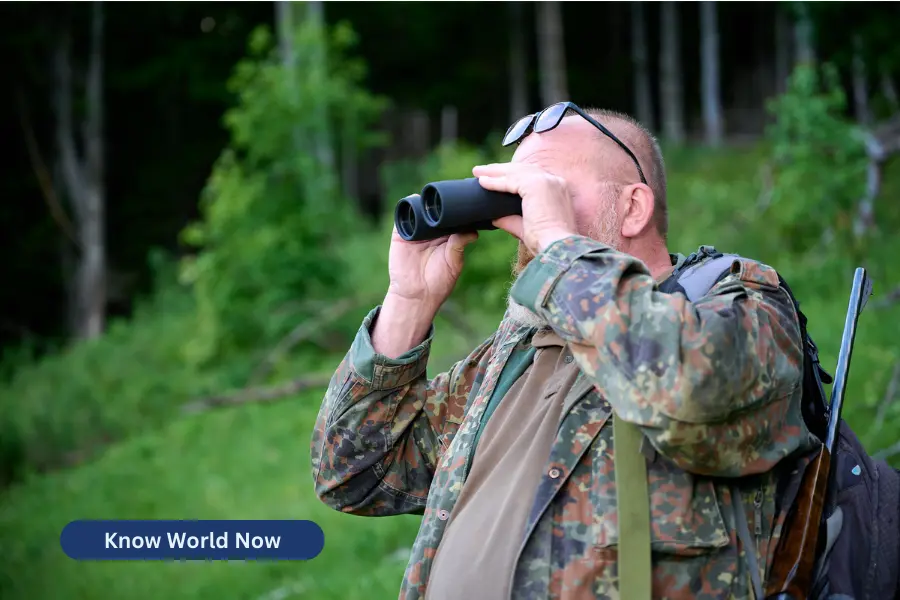Hunting is a cherished outdoor tradition for millions worldwide, offering a unique connection with nature and a means of procuring food. However, to ensure this activity remains enjoyable and sustainable, it is essential to prioritize two critical qualities in hunting locations: accessibility and safety.
These two factors should be points of concern for both people with hunting lease property and practitioners. After all, it involves going out into largely uncontrolled territory, dealing with various risk factors like animal aggression and inclement weather for sport and sustenance.
This article will explore the importance of assessing these qualities, the relevance to leasing hunting land, the main factors to consider in determining safety and accessibility, the role of hunters in maintaining these qualities, and advice on finding safe and accessible hunting locations.
Importance Of Accessibility And Safety
As mentioned, hunting is a risky endeavor, affecting the people involved and the flora, fauna, and locale where the activity is conducted. But even as there’s debate on its continuity, many jurisdictions acknowledge it as an essential activity, particularly for local populations.
The current call for safety and accessibility is propped up on two fronts:
- Legal frameworks: Accessibility and safety in hunting locations are not mere suggestions; they are often enshrined in legal and regulatory frameworks. Laws, such as the Americans with Disabilities Act (ADA) and state-specific hunting regulations, mandate that hunting areas must be accessible to individuals with disabilities and generally safe for all hunters. These laws underscore the importance of ensuring that hunting locations remain places conducive to the welfare of all who use them.
- Conservation: Safety and accessibility are also closely tied to the maintenance of biodiversity. Ethical, forward-thinking hunting practices and easily accessible locations help minimize accidents and environmental damage, ensuring the sustainability of wildlife populations.
For this reason, all people involved in this activity must uphold their due diligence to maintain the integrity of hunting grounds for their welfare and future generations.
How They Matter In Qualifying To Lease Hunting Land
Landowners and hunters alike must prioritize safety and accessibility when leasing land for hunting. Property owners are often legally liable for accidents that occur on their land, so covering these two fronts is in their best interest.
To qualify for a hunting lease, landowners may require hunters to adhere to specific safety and accessibility standards. This ensures that both parties understand their responsibilities and rights when it comes to using the land.

Criteria For Assessing The Two
First-time leasers may find the topic too abstract to grasp fully. For clarification, here’s a quick breakdown of the ways to determine how safe and accessible their prospective hunting grounds are:
Assessing Safety:
- Terrain: Assess the topography of the hunting location. Identify steep slopes, ravines, waterways, or unstable ground that may pose risks to hunters. For example, hunting in hilly terrain might require additional safety measures like wearing non-slip boots or using trekking poles.
- Wildlife presence: Familiarize yourself with the local wildlife and potential hazards. Some animals may be more aggressive or territorial during certain seasons. Knowing and respecting the ways of the local fauna can help hunters take precautions.
- Hunting blind and stand safety: Ensure that hunting blinds and stands are in good condition and securely fastened. Regularly inspect them for signs of wear and tear and replace any faulty equipment.
- Firearms safety: Adhere to strict firearm safety rules, such as always pointing the muzzle in a safe direction and unloading them when not in use. Hunters should also have the proper training and licensing.
Assessing Accessibility:
- Physical accessibility: Evaluate whether the hunting location is accessible to all individuals, including those with disabilities. Ensure that paths and trails are wide enough for mobility aids and consider adding ramps or platforms.
- Transportation: Assess the availability of roads or trails that lead to the hunting site. Ensure that hunters can transport their gear and game easily. All-terrain vehicles (ATVs) or carts may be necessary for more remote locations.
- Distance to facilities: Consider the proximity to essential facilities such as restrooms, first-aid stations, and emergency services. Being able to reach these resources quickly can be crucial in case of an accident.
Finding The Best Hunting Grounds To Lease
To find places that meet the standards outlined here, hunters should consider the following tips:
- Research online: Begin your search by exploring online resources for hunting leases and land listings. Websites and forums catering to hunters often feature available properties with detailed descriptions and photos. These platforms provide a convenient starting point for your hunt.
- Network with fellow hunters: Connect with other hunters in your area or online hunting communities. They may know about available lease opportunities or have valuable insights into specific properties. Fellow hunters can offer firsthand knowledge about the safety and accessibility of potential locations.
- Check out local groups: Join or contact local hunting clubs and associations. These organizations often have information about hunting leases in the region and may even have exclusive access to certain properties. Being part of a community can provide access to well-maintained hunting locations.
- Consult landowners and property managers: Reach out directly to landowners or property managers interested in leasing their land for hunting. Establish a clear line of communication to address any concerns or questions.
Crucial To The Experience
Legal requirements, conservation efforts, and the well-being of fellow hunters all depend on our commitment to ensuring that hunting areas are safe and accessible.
Ultimately, by collectively valuing safety and accessibility, we can preserve the rich tradition of hunting while keeping it for the good of all.



![10 Best Bags for Nurses | Personal Recommendation [2023] 5 Best Bags For Nurses Reviews in 2021](https://knowworldnow.com/wp-content/uploads/2022/12/Best-Bags-For-Nurses-Reviews-in-2021.webp)



![F95Zone Games - The Ultimate Guide for 2021 [F95Z Guide] 9 F95Zone Games](https://knowworldnow.com/wp-content/uploads/2021/07/ArTtW5LrK3b-z-0-y-637f48d86203817a9042a857.webp)